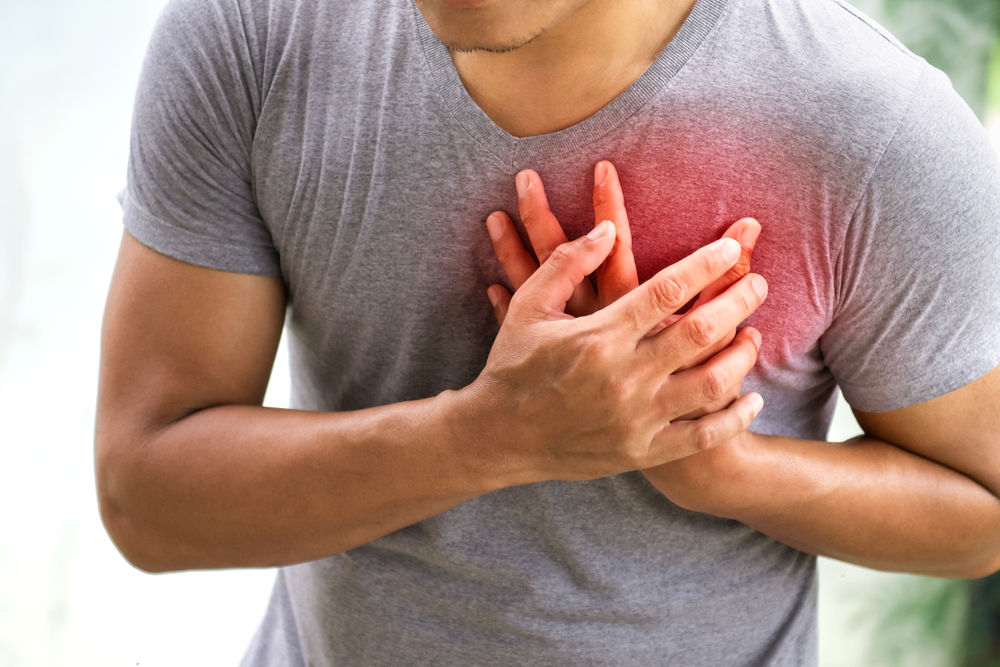Comprehensive Guide to Identifying the Causes of Chest Discomfort and When to Seek Help
This comprehensive guide explores the various causes of chest discomfort, including heart, lung, digestive, and musculoskeletal issues. Understanding symptoms and when to seek urgent care can be life-saving, especially for severe or persistent pain. The article emphasizes the importance of timely medical evaluation to rule out critical conditions and highlights key differences between benign and serious causes of chest pain.

Comprehensive Guide to Identifying the Causes of Chest Discomfort and When to Seek Help
Experiencing discomfort or pain in the chest area can be an alarming experience that causes anxiety and concern. Chest discomfort can result from a wide range of health issues, some of which are benign and self-limiting, while others are life-threatening and require immediate medical attention. Understanding the various potential causes of chest pain is crucial for early recognition and appropriate action. This detailed overview aims to shed light on the common and less common reasons behind chest discomfort, helping individuals to discern symptoms and know when to seek urgent care.
Cardiac-Related Causes of Chest Discomfort
One of the most critical considerations when experiencing chest discomfort is whether the pain originates from the heart. Cardiac issues are among the most serious causes of chest pain and are often associated with symptoms such as radiating pain, shortness of breath, sweating, and nausea. Recognizing these signs promptly can be lifesaving.
Heart Attack (Myocardial Infarction): A heart attack occurs when a blockage, often caused by a blood clot or plaque buildup in the coronary arteries, prevents oxygen-rich blood from reaching parts of the heart muscle. This leads to tissue damage and intense chest pain often described as a crushing or squeezing sensation. Accompanying symptoms can include sweating, nausea, dizziness, and pain radiating to the arm, neck, or jaw. Immediate medical attention is vital to restore blood flow and prevent heart damage.
Aortic Dissection: This severe condition involves a tear in the inner layer of the aorta, the main artery carrying blood from the heart. The dissection can cause severe chest pain that might radiate to the back, abdomen, or neck. The risk of rupture makes this a medical emergency requiring prompt diagnosis and surgical intervention.
Angina: Angina is chest pain caused by temporary ischemia or reduced blood flow to the heart muscle due to narrowed coronary arteries. It often occurs during physical exertion or stress and may relieve with rest or medication. While not immediately life-threatening, angina indicates underlying coronary artery disease and warrants medical evaluation.
Pericarditis: Inflammation of the pericardium, the sac surrounding the heart, can cause sharp, stabbing chest pain that may worsen when lying down or inhaling deeply. Often associated with viral infections, autoimmune conditions, or post-myocardial infarction, pericarditis requires medical diagnosis and treatment.
Pulmonary Causes of Chest Discomfort
Chest pain is not solely related to heart problems; lung conditions can also produce significant discomfort. Recognizing respiratory-related causes is essential for a comprehensive understanding of chest symptoms.
Pulmonary Hypertension: Elevated blood pressure within the lung arteries forces the heart to work harder, leading to chest pain and shortness of breath. Symptoms can worsen with activity and may be accompanied by dizziness or swelling in the legs.
Pneumothorax (Collapsed Lung): A sudden leakage of air into the space between the lung and chest wall can cause abrupt, intense chest pain and difficulty breathing. This condition requires immediate medical intervention to re-expand the lung.
Pleurisy: Inflammation of the pleura, the membranes surrounding the lungs, causes a sharp, stabbing pain that worsens with deep breathing or coughing. It can be secondary to infections or autoimmune conditions.
Pulmonary Embolism: A blood clot blocking one of the pulmonary arteries leads to severe chest pain, shortness of breath, rapid heartbeat, and sometimes fainting. Rapid diagnosis and treatment with anticoagulants are critical for survival.
Pneumonia: Lung infection caused by bacteria or viruses manifests with chest pain, fever, cough, and fatigue. The chest pain may feel dull or sharp and is often accompanied by coughing and difficulty breathing.
Digestive System-Related Causes
Sometimes, gastrointestinal issues can mimic serious chest pain, creating confusion and concern. Recognizing these causes can aid in differentiating benign from urgent conditions.
Heartburn (Gastroesophageal Reflux Disease - GERD): Acid reflux after heavy, spicy, or fatty meals causes a burning sensation behind the breastbone, often radiating towards the throat. It may be aggravated by lying down or bending over and can be accompanied by regurgitation.
Gallbladder and Pancreatic Disorders: Conditions such as gallstones or pancreatitis may cause pain radiating to the chest and upper abdomen. These typically worsen after eating and may be associated with nausea or jaundice.
Hiatal Hernia: When part of the stomach pushes into the chest through an enlarged diaphragm opening, it can cause reflux, chest discomfort, and regurgitation, especially after meals.
Peptic Ulcers: Ulcers in the stomach or duodenum lining can produce burning or gnawing pain that sometimes radiates to the chest area, often worsened by eating or on an empty stomach.
Musculoskeletal Causes
Injuries or disorders involving muscles, bones, or connective tissues around the chest are common causes of less serious chest pain but can be quite uncomfortable.
Costochondritis: This inflammation occurs where the ribs meet the sternum, causing localized, aching chest pain that worsens with movement or pressing on the area.
Rib Injuries: Fractures, bruises, or strains resulting from trauma or falls produce persistent pain that worsens with breathing or movement.
Muscle Strain: Overexertion, strenuous activity, or conditions like fibromyalgia can lead to muscular pain in the chest area, often improving with rest or therapy.
Other factors contributing to chest discomfort include anxiety, panic attacks, infections, and high blood pressure. Because some causes are potentially life-threatening, seeking prompt medical evaluation is essential whenever chest pain occurs, especially if it is severe, persistent, or associated with other symptoms.





